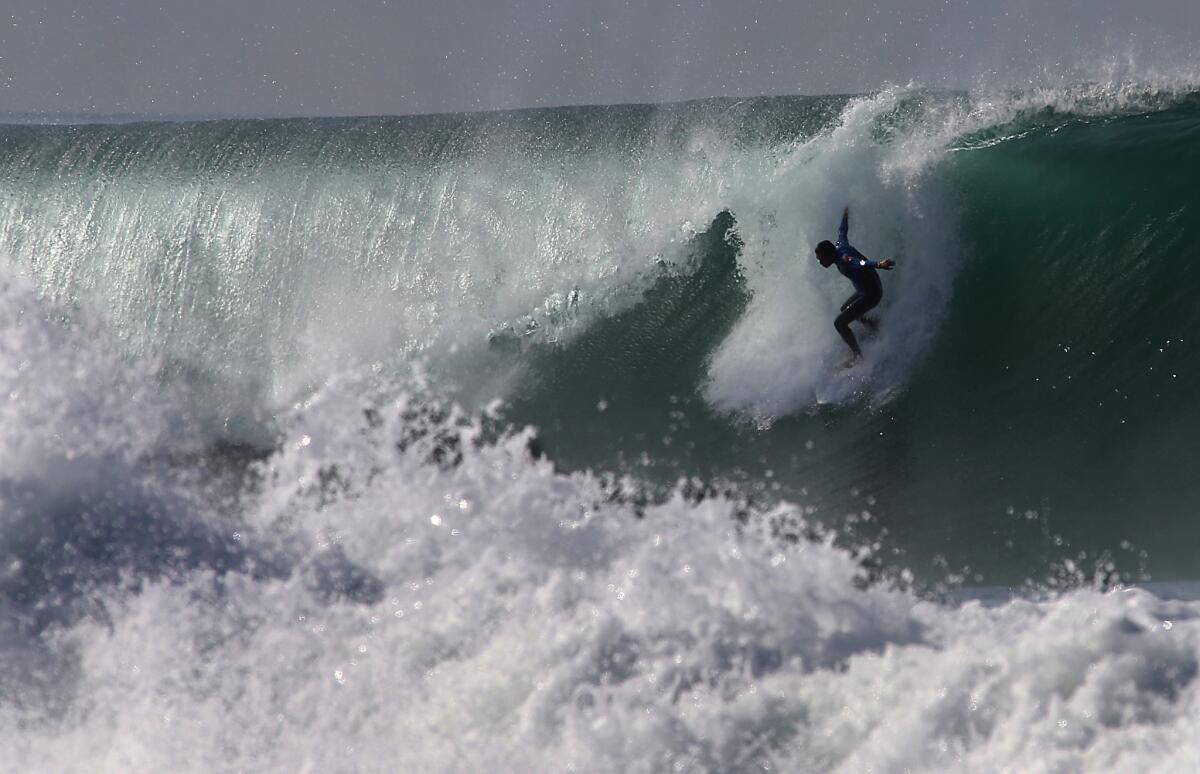Surfers take to sometimes-tainted water in the name of science

- Share via
Reporting from San Diego — More than 600 local surfers played a role in a groundbreaking epidemiological study looking into the risks of surfing in compromised water.
Using a phone app, they logged when they went into the water and how often they got sick.
The participants were enticed into the program with a free bar of surf wax, and were encouraged to follow up with researchers with a free subscription to a surf-condition-and-forecasting service.
It’s long been known that, following rainstorms, the water quality at San Diego County’s beaches deteriorates. Rain creates runoff, which results in blooms of bacteria dangerous to people — E. coli and Enterococcus.
The study — conducted by researchers from UC Berkeley, the Southern California Coastal Water Research Project and the Surfrider Foundation — provides a better statistical understanding of the risk beach-goers take when they swim during bacteria advisories.
The research proved what was mostly anecdotal before — swimming in water after rains comes with an increased risk of gastrointestinal illness.
The risk of getting sick after swimming in the ocean is about 25 per 1,000. That number increases to 32 per 1,000 following rainy conditions, the study found.
The data were gathered during the winters of 2013-14 and 2014-15, for those that surfed at Tourmaline Surfing Park and Ocean Beach.
Most surfers went out about twice a week. They reported submerging their heads in the water 96% of the time, with 38% saying that they swallowed water during the surf session. On average, surfers spent two hours in the ocean.
Surfers were less likely to enter the ocean one day after rain, but about 10% of all of the data points were considered “wet weather exposure.”
Compared with non-surfing times, exposure to seawater increased the rates of infections and gastrointestinal illness, with wet weather increasing the risk even further.
Enterococcus infections were common following rainstorms.
Urban environments such as Los Angeles and San Diego are more prone to elevated bacteria levels than rural ones, and the lack of consistent rainfall in Southern California means that there is more buildup of detritus to be washed away.
daniel.wheaton@sdunion-tribune.com
Wheaton writes for the San Diego Union-Tribune
ALSO
Scientists may have a cure for jet lag: Temporary oxygen deprivation
Pictures show that Mars probe may have exploded during crash landing
Pediatricians weigh in on a fraught issue facing parents today: How much screen time is OK?
More to Read
Sign up for Essential California
The most important California stories and recommendations in your inbox every morning.
You may occasionally receive promotional content from the Los Angeles Times.













